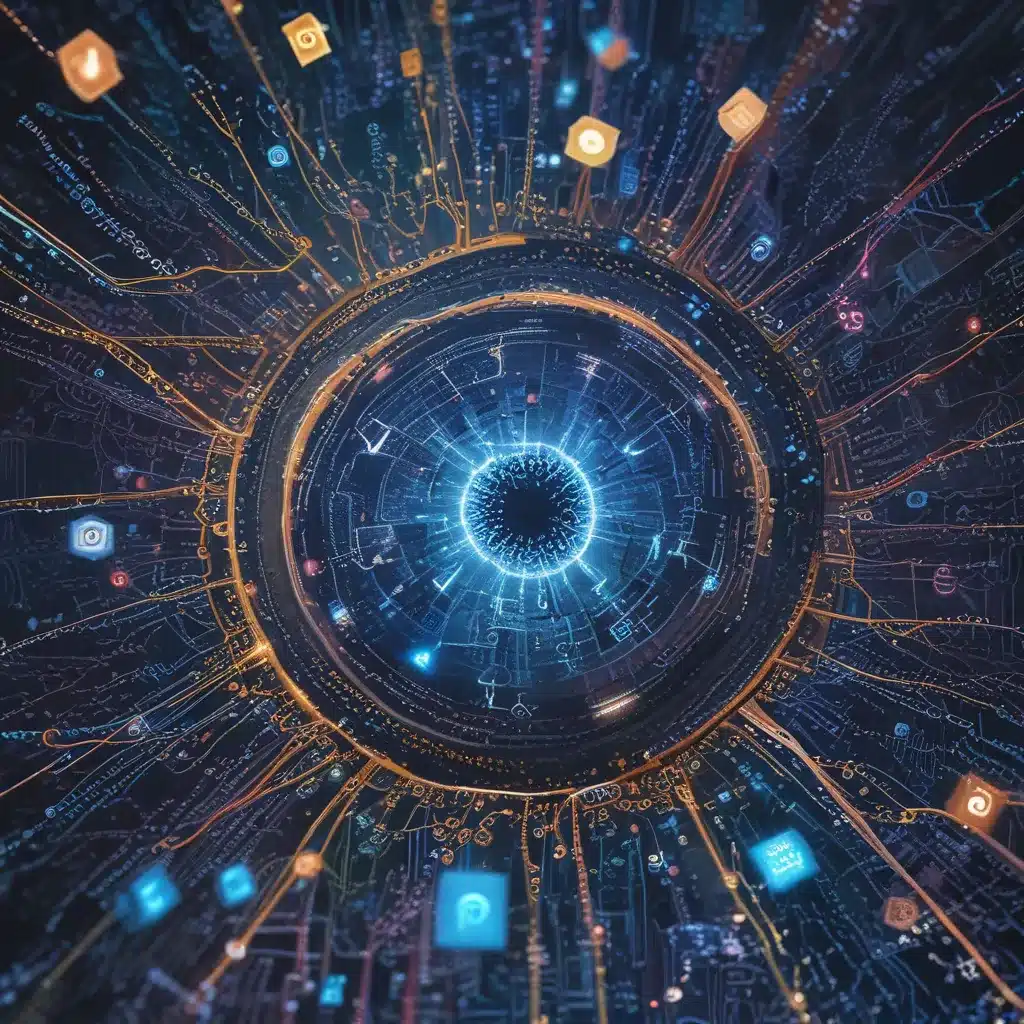The Invisible Architects of Our Lives
It’s no exaggeration to say that algorithms run the world we live in. From the moment we wake up to the moment we go to sleep, these invisible instructions dictate the ebb and flow of our daily lives. The online searches we conduct, the movies we watch, the news we consume – all of it is curated and delivered to us by the silent algorithms lurking behind the scenes.
But what exactly are these mysterious algorithms, and how are they shaping our world? As an IT professional, I’ve had a front-row seat to the algorithm revolution, and I can tell you that the impacts – both positive and negative – are far-reaching and profound.
Algorithms: The Building Blocks of the Digital Age
At their core, algorithms are simply sets of instructions for solving a problem or completing a task. They’re the backbone of everything we do online, from the complex calculations that power our GPS systems to the personalized recommendations that pop up on our social media feeds. Algorithms are the invisible arbiters of human decision-making in almost any area we can imagine, and their influence is only going to grow in the years to come.
Think about it – when was the last time you manually sorted a column in a spreadsheet? Or calculated the best route to your destination without consulting a map app? Algorithms are doing that work for us, quietly and efficiently. And as the amount of data we generate continues to skyrocket, these algorithmic systems are becoming increasingly sophisticated, able to process and analyze information at a scale that would be impossible for a human to manage.
The Positive Impacts of Algorithms
Now, before you start to panic about the impending robot takeover, let’s take a moment to appreciate the incredible benefits that algorithms can bring to our lives. Algorithms are enabling breakthroughs in fields like healthcare, education, and government, helping us to tackle complex problems and make more informed decisions.
Take healthcare, for example. Algorithms are being used to analyze vast troves of medical data, identifying patterns and trends that can lead to earlier diagnosis and more personalized treatment plans. They’re also automating tedious administrative tasks, freeing up healthcare providers to spend more time with their patients. And in the realm of education, algorithms are powering personalized learning platforms that adapt to a student’s individual needs and learning style, helping them to achieve their full potential.
But the benefits of algorithms don’t stop there. They’re also making our transportation systems more efficient, our financial transactions more secure, and our entertainment experiences more tailored to our individual preferences. In short, these mathematical marvels are quietly revolutionizing every aspect of our lives, and the best is yet to come.
The Darker Side of Algorithms
Of course, with great power comes great responsibility, and the rise of algorithms has also brought some concerning side effects. One of the biggest issues is the potential for algorithmic bias – the idea that the algorithms we create can bake in our own human biases and prejudices, often in ways that are invisible to us.
Algorithms are primarily written to optimize for efficiency and profitability, without much thought about the societal impacts. And because the datasets these algorithms are trained on often reflect existing societal inequalities, the resulting algorithms can perpetuate and even exacerbate those biases.
Imagine a hiring algorithm that automatically rejects job applicants with “urban-sounding” names, or a credit scoring system that penalizes people based on their zip code. These are real-world examples of algorithmic bias in action, and they can have devastating consequences for the individuals and communities affected.
The Limits of Language and the Rise of AI
But the implications of algorithms go even deeper, touching on fundamental questions about the nature of human cognition and the limits of language. As AI systems like GPT-4 become increasingly adept at generating human-like text, we’re faced with the unsettling possibility that machines may one day develop forms of communication and understanding that transcend our own.
This raises profound questions about the future of human-machine interaction, and the role of language in shaping our perception of the world. After all, as the philosopher Ludwig Wittgenstein famously observed, “The limits of my language mean the limits of my world.” If algorithms can generate language that is fundamentally different from our own, what does that mean for our ability to comprehend and interact with these systems?
The Challenge of Algorithmic Transparency
Addressing these challenges is no easy task, but it’s a crucial one if we want to ensure that algorithms are developed and deployed in a way that benefits society as a whole. One of the key issues is the lack of transparency around how these algorithms work – they’re often treated as proprietary “black boxes,” with the inner workings hidden from public view.
This opacity makes it difficult to hold algorithm creators accountable for the real-world consequences of their creations. And without a clear understanding of how these systems operate, it’s nearly impossible for the general public to engage in meaningful oversight or participate in the decision-making process.
Towards a Brighter Future with Algorithms
So what’s the solution? Well, it’s going to take a multipronged approach, involving collaboration between policymakers, technology companies, and the general public. We need to establish clear ethical guidelines and regulatory frameworks to ensure that algorithms are developed and deployed in a responsible and transparent manner. And we need to invest in educating the next generation of tech leaders, empowering them with the critical thinking skills and ethical awareness to navigate this brave new world of algorithmic power.
But perhaps most importantly, we need to remember that we’re not powerless in the face of these technological advances. As IT professionals, we have a unique opportunity to shape the future of algorithms and ensure that they’re used to benefit humanity, not exploit or subjugate it. By staying informed, embracing our role as stewards of technology, and advocating for a more transparent and accountable algorithmic ecosystem, we can help to create a world where the positive impacts of algorithms far outweigh the negative.
So let’s get to work, shall we? The future of our world is in our hands – or rather, our algorithms.













